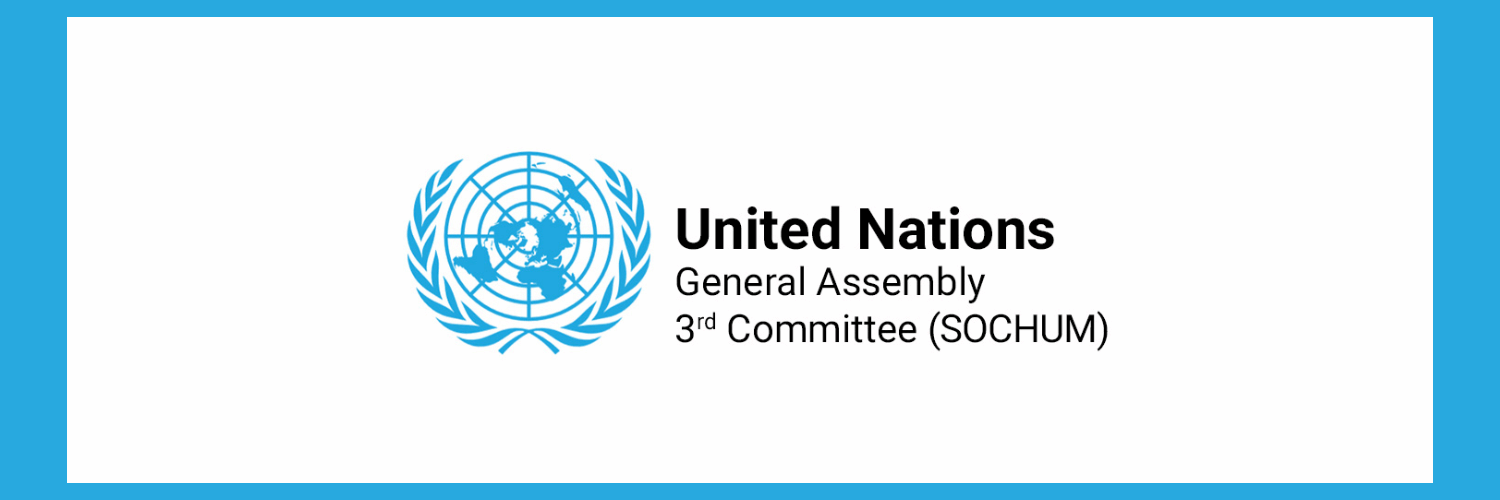UNITED NATIONS, November 21 (C-Fam) The United States, Argentina, and Paraguay were the only three governments to vote against a UN resolution calling for UN sponsored global censorship programs under the guise of combating “disinformation” and “hate speech.”
The resolution was adopted this week by a vote of 169 in favor, 3 against, and 4 abstentions, in the Third Committee of the General Assembly, which deals with social issues.
A U.S. diplomat criticized the resolution for promoting “frameworks that undermine state sovereignty and undermine free speech.”
“Free speech and even odious speech is protected by the U.S. Constitution,” she said. She also criticized the resolution for advancing a “centralized globalized model” for AI regulation that made “broad undefined commitments to international frameworks” and that it was likely to stifle innovation.
The resolution—the first version of which was adopted two years ago with support from the Biden administration —ratifies the global censorship regime launched by the U.S. State Department, U.S. Intelligence agencies, and the European Union to suppress political narratives disliked by elites. The latest version adopted this year has ceded authority to the UN Secretary General and other UN bodies to determine censorship policies applicable to the entire world and all private companies.
The resolution claims that states have a “responsibility” to censor disinformation and counter it with official government propaganda. Even though there is no international definition of disinformation, the concept of disinformation and misinformation is routinely used by technology companies to censor legitimate political debates on a global scale on issues such as migration, climate, abortion, transgender issues, and other controversial social policies.
The resolution also endorses the United Nations Global Principles for Information Integrity, launched by the Secretary-General. These are a blueprint for the type of industrial censorship matrix that President Trump vowed to completely dismantle in his first week in office. They promote direct and indirect censorship, official propaganda, shadow banning, demonetizing, and other social control tools.
These censorship mechanisms are part of the matrix of censorship exposed by the House Subcommittee on the Weaponization of the Federal Government. This censorship framework was built by the U.S. State Department and the European Union to suppress populist political movements in the mold of Donald Trump’s MAGA movement in the United States and the Brexit movement in the United Kingdom. This censorship apparatus was turbocharged in 2020 during the COVID-19 pandemic under pretext of saving lives and has continued to expand ever since.
The lack of support for free speech internationally shows just how difficult it will be for the Trump administration to take down the global censorship regime launched by his predecessor. While President Trump has made significant progress in dismantling censorship programs funded or sponsored by the U.S. federal government in the United States, the international arena remains wide open.
Most countries don’t have strong traditions of self-government, and they don’t attach the same importance to freedom of speech as the United States has historically. The European Union has emerged as an enthusiastic sponsor of social control and censorship online.
The EU Digital Services Act and the AI Act requires tech companies to censor political views disfavored by the European Commission, including on migration, climate, and transgender issues. Europeans aren’t shy about defending their censorship framework as a model for the entire world. They defended the UN resolution on censorship as a united bloc, justifying censorship on the grounds that they are “safeguards needed to guarantee human rights.”
View online at: https://c-fam.org/friday_fax/un-general-assembly-expands-global-censorship/
© 2025 C-Fam (Center for Family & Human Rights).
Permission granted for unlimited use. Credit required.
www.c-fam.org









